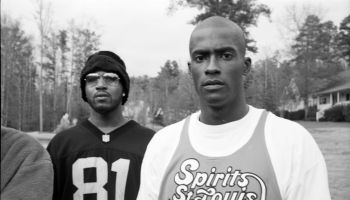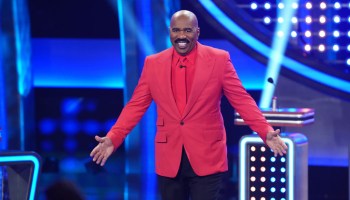The tale of former slaver, writer, and abolitionist Olaudah Equiano (pictured) spans continents, informing his writing of the intercontinental slave trade known as “The Middle Passage.” On this day in 1766, Equiano was fortunate enough to purchase his freedom and forged a life as an author, merchant, and explorer.
SEE ALSO: White Mob, Black Militia Clash During ‘Hamburg Massacre’ On This Day In 1876
Equiano was born approximately in 1745 in the Benin Empire of pre-colonial Africa, which is known today as Nigeria. Although historians have disputed Equiano’s place of origin, it is universally understood he was a part of the Igbo people. Equiano’s time of birth and much of his earlier life is recounted in his biography, “The Interesting Narrative of the Life of Olaudah Equiano, Or Gustavus Vassa, The African,” which is considered one of the earliest slave narratives and set the tone for others to follow his lead.
An office of the British Royal Navy purchased Equiano, renaming him Gustavus Vassa. Because of his closeness to the naval forces, Equiano was trained as a seaman and assisted in battles. However, Equiano wrote in his books that the Virginia colonial masters were cruel to him and he grew to hate the color of his skin. After converting to Christianity in 1759 and with broken promises of freedom, Equiano was sold to a Quaker merchant in the island of Montserrat.
The merchant trained Equiano in his trade, and told him in 1765 that he could buy his freedom for 40 pounds. The merchant also taught Equiano how to read and write, and even granted him passage to join the business. Equiano eventually purchased his freedom but left the colony out of fear of being kidnapped in to slavery again. Equiano narrowly escaped that fate while loading a ship in Georgia, only to be let go after proving he was educated and freed.
Moving to Britain, where it was thought freed Blacks would be free of enslavement, Equiano became involved in the abolitionist movement. He became a standout voice for the movement and was encouraged by his new peers to write and publish accounts of his life and freedom. His book was published in 1789, sending ripples throughout the movement for its stark portrayal of what Equiano and other African slaves had endured.
Equiano’s success enabled him to become a beacon for the African community in London, working extensively with the poor and helming a resettlement of Africans from his adopted home to Sierra Leone. In1792, he married a British woman, Susannah Cullen, and the pair went on to have two daughters.
Tragedy struck the Equiano family as his wife passed at age 34 in 1796. Equiano would die a year later from an undisclosed illness. The couple’s 4-year-old daughter, Anna Maria, died shortly after her father because of illness as well. Joanna, the surviving heir of Equiano, inherited her family’s considerable wealth and later married then became a prominent religious figure in London.
Former Slave & Writer Olaudah Equiano Buys Freedom on This Day in 1766 was originally published on newsone.com












